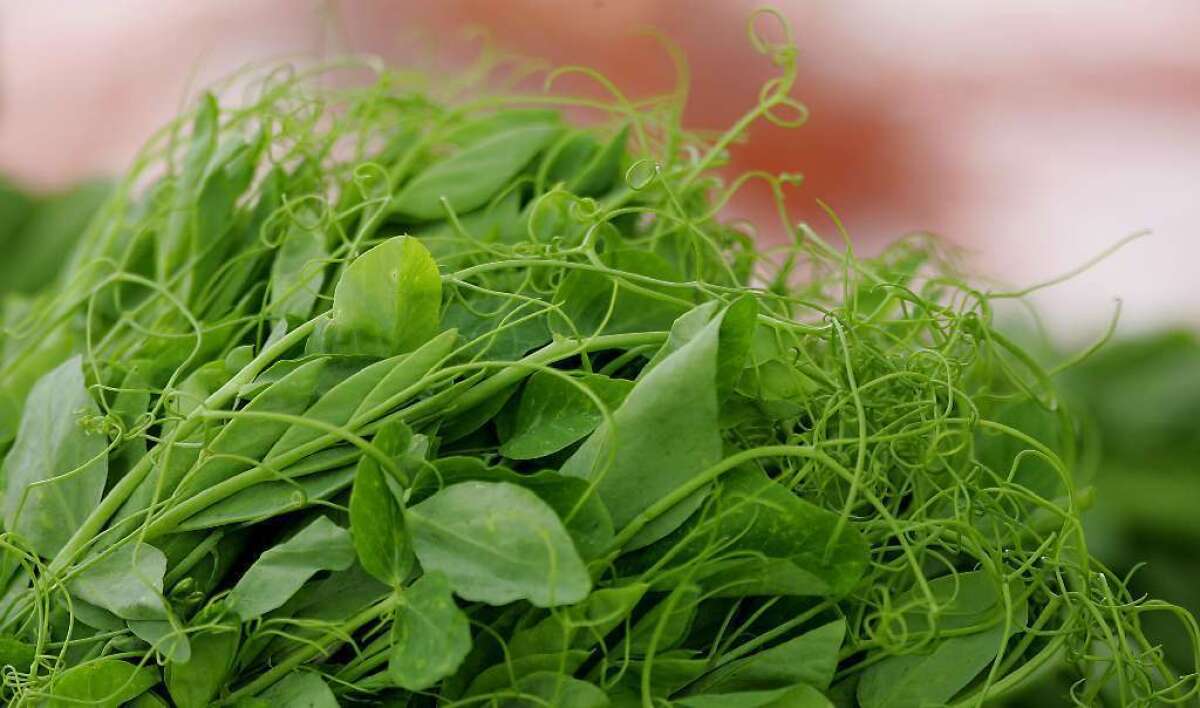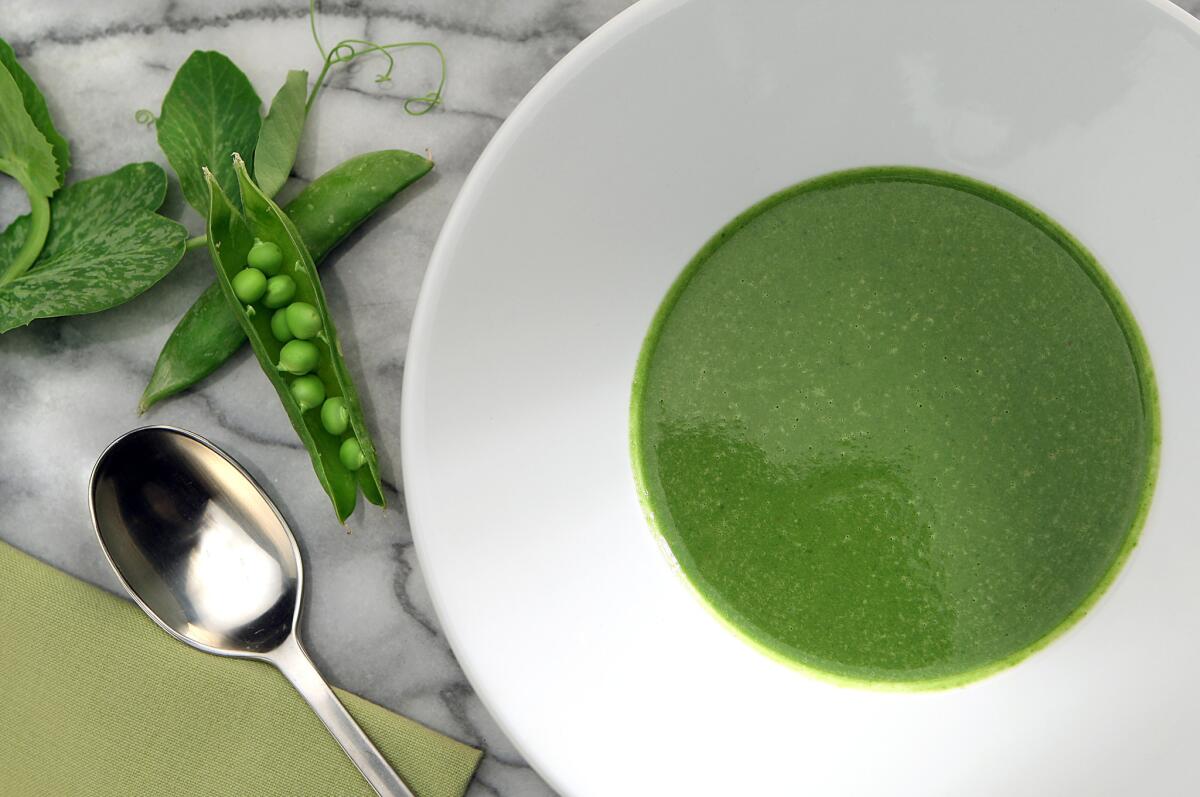Farmers market report: Pea shoots and what to do with them

Delicate pea shoots and curly tendrils have long been used in Asian cuisine and are increasingly turning up in a variety of dishes, both cooked and raw.
- Share via
What’s in season: A sure sign that peas are soon to follow, delicate pea shoots and curly tendrils are showing up in markets. The fragile greens and leaves, harvested from the uppermost part of snow and English pea plants, have long been used in Asian cuisine and are increasingly turning up in a variety of dishes, both cooked and raw. Although the shoots can be found year-round in select Asian markets and specialty produce stores, they traditionally show up in the spring.
What’s just left: Root vegetables, including parsnips and turnips, are beginning to taper off.
What’s on the horizon: Artichokes and asparagus are coming into season.
What to cook: Pea tendrils and greens don’t require much work to prepare and are perfect for lending the flavor of peas without adding the peas themselves to a recipe. Wash the greens and add raw to salads for added texture and flavor, or quickly sauté them toward the end of a recipe to add bright color to a dish. For a simple spring pea soup, blanch peas and pea tendrils until just tender, then purée and add to a broth flavored with olive oil and a little spice. Chill the soup well, then garnish each bowl with an extra curly tendril or two before serving.

SWEET PEA SOUP
Total time: 40 minutes | Serves 6 to 8Note: Adapted from LA Mill Coffee in Silver Lake.
3 cups (14 ounces) shucked English peas
6 cups (14 ounces) pea tendrils
2 1/2 cups vegetable broth, more as needed
1 teaspoon piment d’espelette, or to taste
3/4 cup olive oil
1/2 teaspoon hot sauce, or to taste
Sea salt
Sugar (optional)
1. In a large pot, blanch the peas just until tender, being careful not to overcook. Immediately strain the peas and place in a large bowl of ice water to stop the cooking. Strain and reserve. Repeat with the pea tendrils.
2. In a large bowl using an immersion blender, or in stages using a regular blender, puree the peas and tendrils with the broth until smooth. Strain, then use the blender to blend in the d’espelette powder, olive oil and hot sauce.
3. The starch content of the peas may vary, affecting the thickness of the soup; if necessary, adjust the consistency of the soup with additional vegetable broth. Taste and adjust the seasoning as needed (vegetable broth varies in saltiness, more or less will be needed depending on your brand). If necessary, add sugar to taste for additional sweetness.
4. Serve the soup chilled.
Each of 8 servings: 343 calories; 11 grams protein; 34 grams carbohydrates; 7 grams fiber; 21 grams fat; 3 grams saturated fat; 0 cholesterol; 995 mg. sodium.
Love cooking as much as I do? Follow me @noellecarter
ALSO:
How to pair wine with your favorite Girl Scout cookies
Looking for a new brewpub? Six new breweries to check out now
Ben & Jerry’s cofounder Ben Cohen talks about his new Bernie Sanders ice cream
More to Read
Eat your way across L.A.
Get our weekly Tasting Notes newsletter for reviews, news and more.
You may occasionally receive promotional content from the Los Angeles Times.











